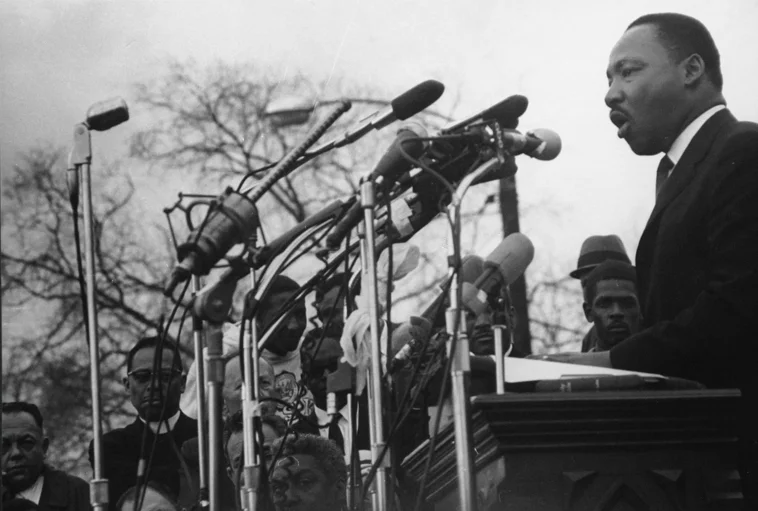Dennis Hopper might be best known as a film actor and director but his first love was photography. In the early 1960s he went everywhere with his Nikon around his neck, photographing streetscapes and people who symbolize street culture, whether they were famous or lived on the fringes. He photographed seminal pop artists who broke artistic barriers by making art from street culture, the Hell’s Angels who made their hang out on the street, the Sunset Strip Riots, and Martin Luther King Jr., whom he accompanied on civil rights marches from Montgomery to Selma. The rediscovery of these lost photographs provides an intimate diary of the time, places and people that shaped his rebellious creative spirit.
Read MoreI shoot a lot of crap,” Dennis Hopper once said of his photographs, most of which date from the early to mid-1960s, the period when the difficult actor, often unemployed, most avidly wielded a still camera.
Read More"Dennis Hopper: The Lost Album” is currently on view at Kohn Gallery in Los Angeles. The exhibition, on view through September 1, includes 400 photographs taken by the artist in the ‘60s, originally shown at the Fort Worth Art Center Museum in 1970.
Read MoreThe late actor Dennis Hopper is remembered for a lot of things. There is the volatile hippie he portrayed in “Easy Rider,” the 1969 counterculture classic he also directed. And there’s his depiction of an unhinged Frank Booth in David Lynch’s “Blue Velvet” in 1986.
Read MoreDennis Hopper, actor, director and art collector, apparently wanted his legacy to be his photography. From the time his actress wife Brooke Hayward bought him his first Nikon camera, he took thousands of black and white photographs.
Read MoreAs an actor, Dennis Hopper’s ability to go from raving lunatic (Blue Velvet) to passionate loser (Hoosiers) to lovable idiot (Cool Hand Luke) really came down to one asset: his eyes.
Read MoreDennis Hopper’s The Lost Album, a collection of the late actor’s poignant black-and-white photography on view now at L.A.’s Kohn Gallery through September 1, was made possible by two key actors: his Rebel Without a Causecostar James Dean, who encouraged him to try his hand behind the camera (albeit as a director), and his first wife, Brooke Hayward, who bought him a Nikon mirror flex in 1961.
Read MoreBefore he ruined Sandra Bullock’s commute by strapping a bomb to a city bus; before he maniacally inhaled gas from a plastic mask, morphing into one of David Lynch’s most sadistic, unhinged villains; and before he donned a hippie headband, straddled a custom chopper and rode easy with Peter Fonda across the American West, Dennis Hopper too
Read MoreDennis Hopper, “The Lost Album,” at Kohn Gallery. In addition to being an actor, Hopper was a devoted photographer, who, for a period of 10 years, principally through the ‘60s, carried his camera with him wherever he went. In the process, he captured scenes on the street, celebrities at rest and his artist friends (figures such as Ed Ruscha and Billy Al Bengston).
Read MoreDennis Hopper’s Lost Album, a trove of photographs taken by the artist and Hollywood star throughout the 1960s, is coming home to Los Angeles, where the entire group of over 400 images will go on display at Kohn Gallery.
Read MoreDennis Hopper often talked about his first photography show when he was alive. The exhibition of 400 black-and-white photos, shot between 1961-1967, took place in 1970 at the Fort Worth Art Center in Texas. It was an achievement that remained to him since, despite his prolific acting career, Hopper increasingly wished to be remembered as a photographer by the end of his life.
Read More










